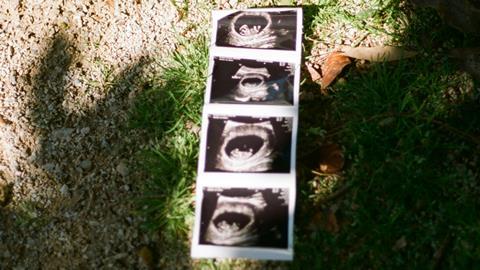Lily Allen’s inflammatory comments have outraged Christians and non-Christians alike. Especially when, Hope Bonarcher asserts, women have been created by God to birth life, encouragement and hope
As God’s daughters, we should resemble our Father. After all, he’s transforming us to look more and more like him (see 2 Corinthians 3:18, Romans 8:29). As image bearers, we should walk like him, by his Spirit; love what he loves, hungering and thirsting after righteousness; and create as he creates, bearing into the world life, truth and beauty. Like our Father, Christians are imbued with the call to bring hope out of hopeless situations.
Take Eden after the Fall, for instance. Adam and Eve faced what was probably the lowest low of human history. They’d rebelled against God, thrown each other under the bus and each had just received curses that would reverberate for generations. On the heels of this valley experience, Adam pivoted from shaming his wife and instead chose to name her. Of all the potential names in his arsenal, he didn’t choose something that sounded like “to have a hard time listening”, “to dwell with the reptiles” or “to ruin everything”. No, Adam chose to name her “Eve”, which sounds like a Hebrew term that means “to give life” (Genesis 3:20). I wonder, if Eve had been more secure in her identity, had she been named before the Fall, would she have been more likely to agree with God over the enemy?
True to his merciful nature, God showed compassion for Adam and Eve immediately after their rebellion. He pursued them (Genesis 3:8-9), though, being all-knowing, he was already aware of their sin. He engaged them with questions, giving them the chance to explain themselves instead of angrily accusing them (Genesis 3:9-13). He disciplined them clearly and directly, true to his word, which says he corrects and disciplines everyone he loves (Revelation 3:19), and even when he barred them from the Garden, he shed the first blood in creation to make clothing from animal skins to cover and protect them in the shame of their nakedness (Genesis 3:21). Often, we receive the narrative from the world that when all seems lost, it really is. But God is the God of all hope (Romans 15:13), the resurrection and the life (John 11:25), he’s the ladder (John 1:51), the gate (John 10:7), the light (John 8:12), the way (John 14:5). In Christ, we have sincerest confidence, even in the worst of circumstances, that nothing is ever hopeless. Life wins.
Culture lauds abortion
Alternatively, the rhetoric coming out of our culture has become increasingly death centric and defeatist. If our identity in Christ is as life givers, the world seems more increasingly to frame women as those who should celebrate life taking. Those who dare to publicly champion life are often maligned as uncompassionate and judgemental. In 2022, UK singer-songwriter and actress Lily Allen posted on Instagram, “I wish people would stop posting examples of exceptional reasons for having abortions. Most people I know, myself included, just didn’t want to have a f*******g baby.” More recently, on her ‘Miss Me?’ podcast on the ‘BBC Sounds’ platform, Allen sang to the tune of Frank Sinatra’s ‘My way’, “Abortions, I’ve had a few…but then again, I can’t remember exactly how many.” Upon questioning by her co-host, Miquita Oliver, she continued: “I can’t remember, yeah. I think, maybe like, I wanna say five? Four or five?” Oliver then jovially concurred that she herself had had about five abortions.
Even more recently, actress from the HBO Max spinoff, And Just Like That, Cynthia Nixon posted a selfie of herself in a red MAGA-style baseball cap with the motto ‘Make Abortion Great Again’ emblazoned upon it. Nixon, beloved for originating the role of Miranda on Sex and the City, one of culture’s long-held feminist commentaries, is a model of how deep the current devolution of modern womanhood has actually run.
A transformed position
I don’t write these words in condemnation. I had two abortions in my 20s. Without Jesus’ intervention, I would likely be one of these lost women. Far from hating women who’ve had abortions, if I hate anything, it’s the lying, death-cult mantras I once lapped up, like a kitten to a bowl of milk, the fem-speech like “my body my choice” and “it’s only a clump of cells”. Back then, nothing made me more furious than pro-life protestors on my university campus, bearing blown-up, gory posters of aborted fetal remains. They were showing the truth, but it made my blood boil. Yet, eight years later, my creator God extended me preciously invaluable, undeserved grace. Overnight, God not only transformed my eternal reality, he changed my position on the issue of life. He turned my heart from one of stone to one of flesh, and my identity to life giver from life taker.
The voice of the world speaking into the psyche of women spins the idea that thinking of ourselves as life givers is one dimensional and demeaning, as if the ultimate power today’s women hold is in the fiercely protected ability to unalive even the innocent, without guilt or condemnation. In mid-June, UK MPs voted to decriminalise a mother’s act of aborting her own baby, even up until birth.
“Women’s reproductive health is about our life. It’s about this whole complicated reproductive system that the least of what it does is produce life.” That quote is not from a pop singer or actress. It’s from one of the world’s most revered women who oozes influence – her name at one point was even floated as a hopeful for the next American president. Explaining the value, or lack thereof, of women’s God-ordained bodies, is Michelle Obama on her ‘IMO’ podcast. Obama drives home an unfortunate truth: though women have been ordained as life givers from the Garden, today, the rich and powerful deem it the very least we can do. I agree with God. Women may give life physically, but we must also speak, champion and encourage others toward it. It’s our identity and legacy as women of God to extend the gift of life, mercy, hope and grace that was first offered to the original life giver in Eden.


































No comments yet